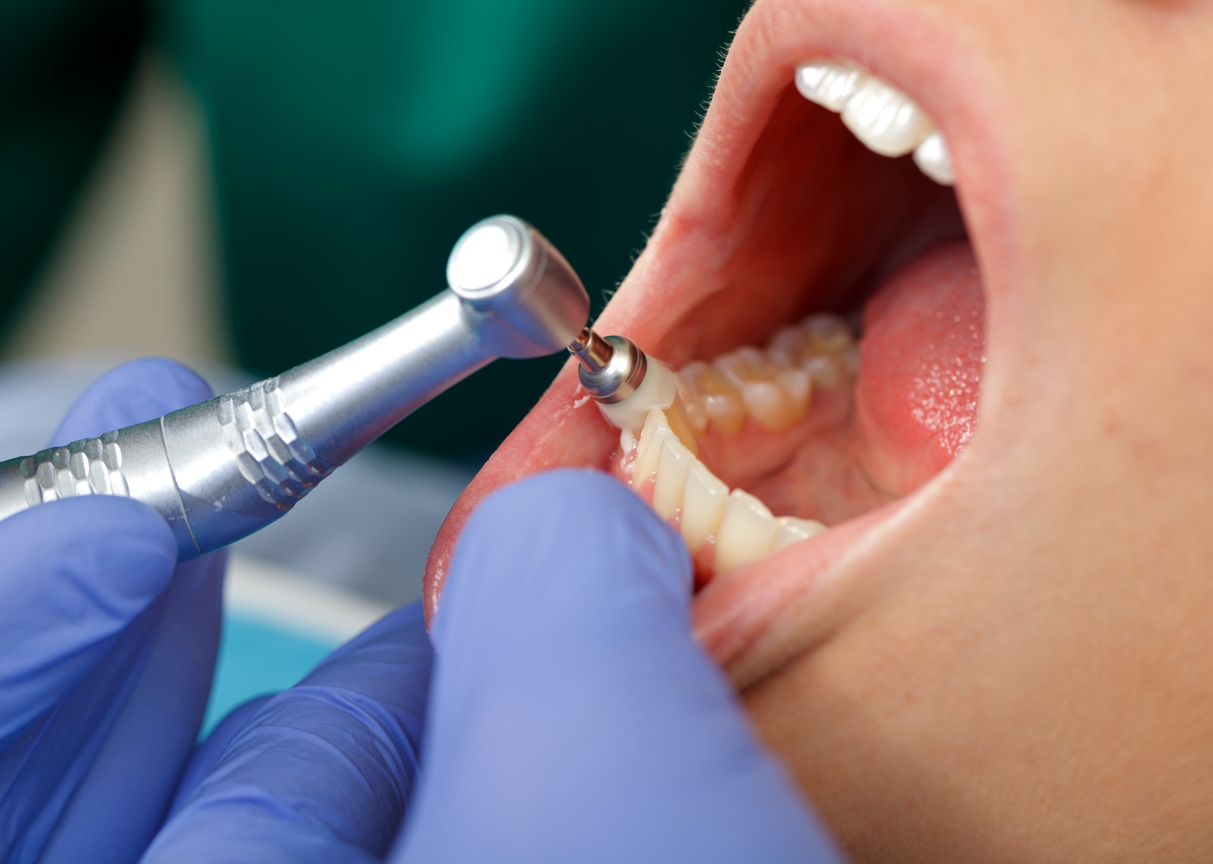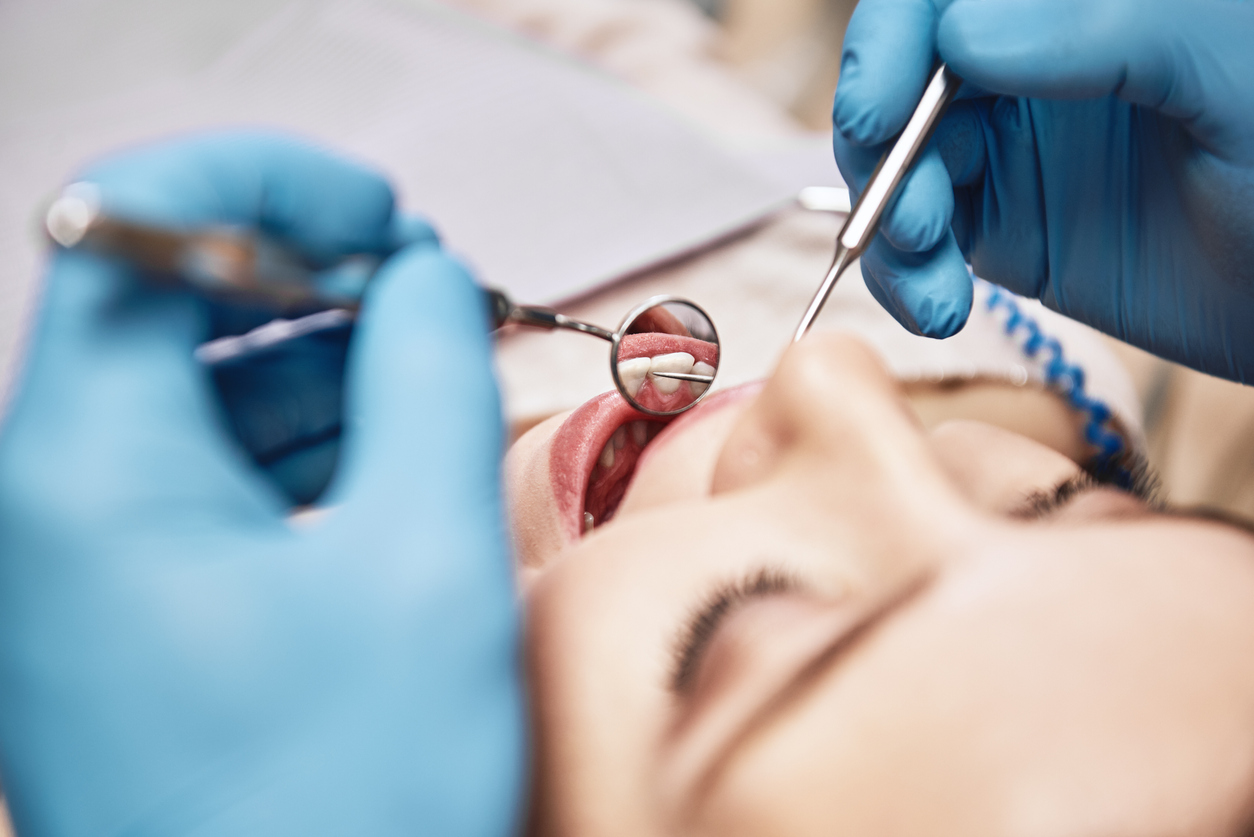
Helping you maintain excellent oral hygiene
At Portlethen Dental, our priority is protecting your oral health, keeping your teeth and gums healthy and attractive for the long term. Our preventative dental team is made up of two dental hygienists to help you keep tooth decay and gum disease at bay. Tailored hygiene treatment is necessary to clean away stubborn plaque and tartar, building on the hard work you do at home to avoid gum disease, periodontitis and further issues.
Tell me more
How can a dental hygienist help me?
Visiting a dental hygienist once or twice a year can help to prevent oral health diseases and ensure your teeth and gums are healthy.
Hygienists are best placed to look after your oral health, spot any issues that could compromise this and resolve them efficiently. Hygienists can:
- Clean your teeth thoroughly, removing plaque and tartar from the teeth and gum line
- Polish your teeth to remove stains and give them a glossy finish
- Educate you about oral hygiene and ways to prevent oral health problems
- Advise you about giving up smoking
- Advise you about nutrition
Visiting a hygienist will leave you with an amazing deep-clean feel, shiny healthy teeth and fresh, clean breath.
What happens during a hygiene appointment?
Book an appointmentWe begin your hygiene appointment by asking a few questions about your dental health and overall general health, and finding out if you have any concerns or worries. We also examine your teeth and gums, looking for signs of disease or areas that may need more of our attention.
The main part of your hygiene appointment involves a thorough professional clean. We take time to remove all plaque and build ups of tartar, including from areas that are particularly hard to reach during your brushing routine at home. Your teeth are then carefully polished, leaving them feeling smoother, cleaner and brighter.
To finish your hygiene appointment, we give you some tips and advice on how to care for your teeth and gums at home, including using interdental brushes if necessary.
Frequently asked questions
Gum disease is a common condition but highly preventable. Gingivitis is the first stage of gum disease and causes symptoms such as swollen, sore gums and bleeding, especially after brushing. It is caused by a build-up of plaque along the gum line, with the majority of people suffering from gingivitis at some stage. However, it is relatively easy to treat. If plaque is allowed to harden along the gum line, known as tartar, this is much harder to remove and requires a trip to the dental hygienist.
Periodontal disease, also known as periodontitis, is an advanced form of gum disease. Unlike gingivitis, this condition is difficult to treat and can cause irreversible harm to the teeth and gums. Periodontal disease is the main cause of tooth loss in adults. As bacterial infection spreads to the deep gum tissue, it can also affect the bone tissue supporting the gums, causing pockets to form between the gums and the teeth, until teeth eventually become loose and potentially fall out. Periodontal disease can also cause abscesses to form, which are often painful.
Often the anticipation of going to the dentist or dental hygienist is much worse than the actual visit. However, we aim to create a calm and relaxed environment to help you feel at ease. There can be an element of discomfort during treatment, with some potential tooth sensitivity. We will ensure you know what to expect before any treatment and are guided by you. If you feel any pain, we will stop immediately to give you a break.
The amount of time between appointments for visiting your hygienist is specific to each individual patient, based on the condition of your teeth and gums and the likelihood of any problems occurring. For most patients, a visit once or twice a year, in line with your dental check up appointments, is enough to keep your teeth and gums healthy.
Smoking is harmful for oral health and general health, increasing the risk of gum disease and causing teeth to become discoloured. It is particularly dangerous for people who have periodontal disease, as it slows the body’s natural healing process by preventing the steady flow of blood to the gums. Our dental hygienists will be happy to discuss methods of quitting smoking and we are always on hand to help and support you.
Good oral hygiene is vital to the success of your implant treatment. The role of the hygienist is to ensure that you understand the importance of your periodontal health in relation to the long-term success of your treatment before it begins. As part of this, a periodontal examination is often necessary to remove any plaque and tartar, to chart any problem areas and to design an ongoing maintenance plan, which will help you care for your implants once they have been placed.



